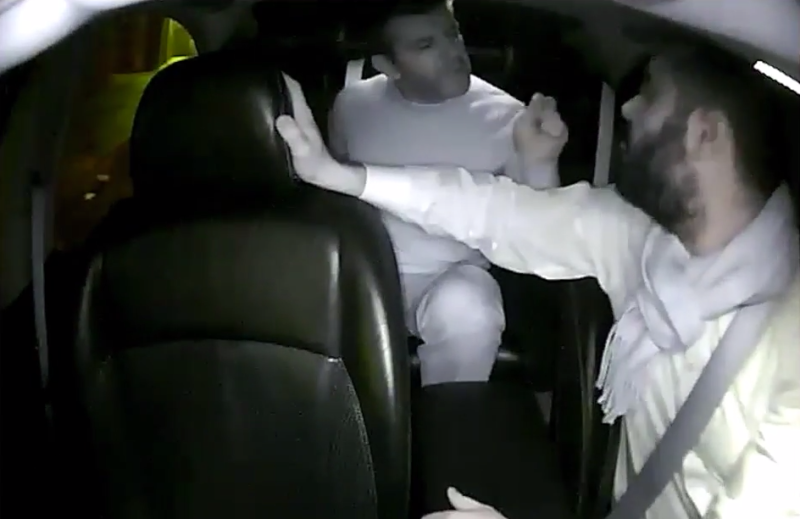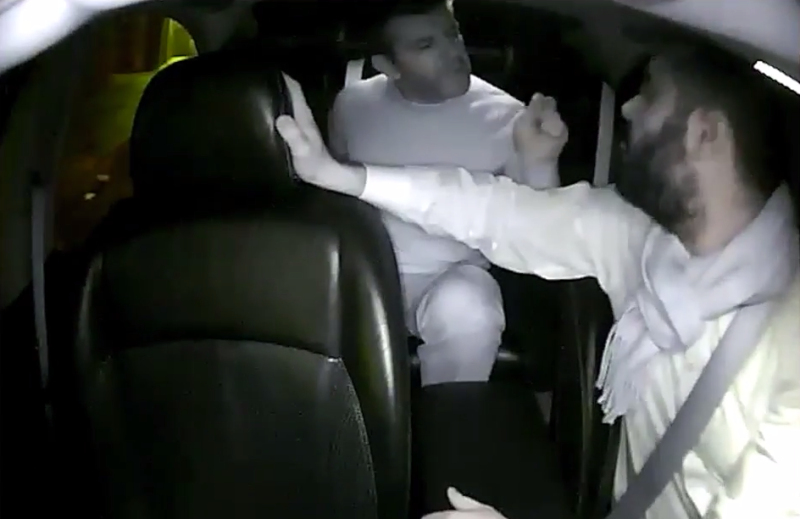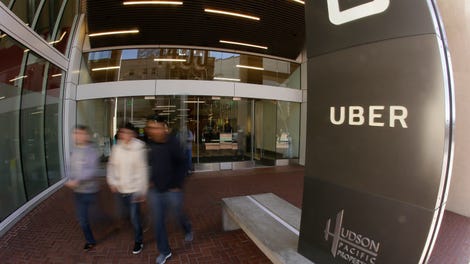
A report on Uber’s workplace culture is expected to be delivered as early as tomorrow, with recommendations that were approved by the ride-hailing giant’s board of directors on Sunday—including, reportedly, firing the top deputy to Uber’s firebrand CEO Travis Kalanick. But after a year in which the company has been consumed with self-inflicted scandals, there is a reason why Kalanick most likely hasn’t been shown the door just yet.
The worst punishment considered for Kalanick—at least for now—has been a temporary leave that was reportedly discussed by Uber’s board on Sunday. (Kalanick’s deputy, Emil Michael, has been linked to several of the company’s scandals—and the company confirmed he indeed has since left Uber, following the board’s meeting.)
Advertisement
Amid the company’s crisis, the 40-year-old Kalanick has been dealing with a personal tragedy, after a boating accident last month claimed the life of his mother and sent his father to the hospital. The New York Times reports Kalanick proposed the idea of a temporary break himself to have time to grieve.
But soon after the company faced renewed controversy, after it emerged that execs at the start-up had obtained the medical records of a victim who was raped by an Uber driver in December 2014. The incident was linked to speculation at the highest levels of Uber—including Kalanick—that the assault didn’t occur and was contrived by Uber’s rival in India to hurt the company’s image.
Expectedly, given the disturbing nature of the situation, there was a fresh wave of calls for Kalanick’s resignation.
Sponsored
“One day we will look back at what will hopefully be the smouldering wreckage of Kalanick’s career and ask how a person so lacking in basic human and corporate ethics was allowed to run a company for so long,” wrote Kadhim Shubber on Financial Times’ Alphaville.
Still, the prospect of Kalanick’s dismissal is debatable—and reports Monday suggested he may not even take a leave of absence, beyond dealing with family issues. (The consideration of Kalanick’s temporary leave is separate from the report on Uber’s workplace culture that’ll be issued this week by former U.S. Attorney General Eric Holder.)
‘Super-Voting’ Shares
So why isn’t Kalanick gone? Looking to the most recent example of a high-profile CEO dismissal, in Ford’s decision to can Mark Fields, the disparity is stark: Fields was fired because Wall Street struggled to get behind the automaker, causing a decline in its stock prices, and he was slow to make a strong case for Ford as a leader in the race to develop autonomous vehicles.
Advertisement
Kalanick, meanwhile, cultivated a company with a disastrous workplace culture that recently led to the firing of 20 employees, faces multiple criminal investigations, and continues to bleed money seemingly with no end in sight.
But the main reason why Uber’s board hasn’t pushed to fire Kalanick is because its design is a textbook example of Silicon Valley culture. Backchannel explains:
That’s due in part to the dual-class share structure that savvy tech founders have come to embrace in recent years. Essentially, in one class, a share carries one vote; in the other class, shares come with ten votes each or more. These super-voting shares allow founders and some early investors to maintain control over decisions the company makes, even if their ownership in the company is significantly reduced. Founders increasingly pair this strategy with smart management techniqueswhen setting up a board to guarantee control in perpetuity.
According to Uber’s articles of incorporation, the company has 11 board seats, nine of which carry super-voting shares. As of now, the company has filled only seven of those spots. Two outside investors hold super-voting seats. The others fall to Kalanick and two of his allies: Garrett Camp, a cofounder who is a non-executive chairman of the board, and early employee Ryan Graves. Kalanick has chosen to leave four super-voting seats empty, according to The Information. Were board members to counter Kalanick, he could simply fill the empty seats.
In other words, the way Uber’s board is comprised at the moment affords those loyal to Kalanick with a tremendous degree of power. And many of those people are close with him or have worked with him for a long time. But that makes you wonder just how much they’re willing to bear; loyalty only goes so far for anyone.
Advertisement
Google’s co-founders brought about the idea of a dual-class structure, according to Backchannel, and it’s more or less moved into the mainstream for corporations. On Sunday, the New York Times’ Mike Isaac reported that, while the meeting was underway, investors reportedly emailed board members to remind them of their main priority: the “fiduciary responsibility to Uber.”
That, to me, seems like the most obvious reason that could lead to Kalanick being fired. The company reportedly has about $7 billion in cash on-hand, and could one day seek out an additional round of funding. If, at that point, investors balk, then perhaps there’ll be more serious action taken against Kalanick. But for now, it’s an unlikely proposition.
















